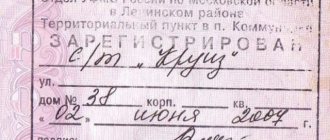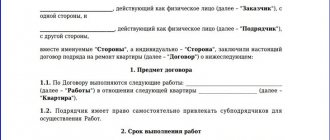Lawyer for defrauded investors
— Verification of DDU agreements, — Drawing up claims, complaints for the collection of penalties, termination of contracts, support of cases in case of bankruptcy of the developer, — Protection of the rights of shareholders in a dispute with the developer.
lawyer!
lawyer!
Or call us right now! We are in touch!
+7-981-714-95-98
What is a housing cooperative agreement and why is it needed?
According to statistics, up to 30% of apartments in Russian new buildings are sold by concluding a housing cooperative agreement.
A housing construction cooperative is an association of individuals and legal entities who have voluntarily united to build real estate. Members of such a cooperative financially participate in the construction of the house, its reconstruction and maintenance through the payment of share contributions.
The buyer of an apartment in a building under construction becomes a shareholder and signs an agreement with the housing cooperative. In it, the housing cooperative undertakes to transfer to the shareholder an apartment with certain characteristics, and the shareholder is obliged to pay the full cost of the share and accept it. Participants regularly make contributions to the housing cooperative, the total cost of which is equal to the cost of the apartment. After full payment of the share, the participant can become the owner of the property.
The housing cooperative agreement is the most important document that regulates the relationship between shareholders (future apartment owners) and the housing cooperative. It describes the conditions for investing money in the development, the rules for making a down payment and subsequent payments for the apartment, characteristics of the property, the procedure for making decisions in the cooperative and the conditions for the shareholder to leave the housing cooperative.
The housing cooperative agreement contains the rights and obligations of the parties and the most important conditions for the sale of real estate. If many aspects regarding the DDU are stipulated at the legislative level, then all controversial situations between the board of the housing cooperative and the shareholders are resolved taking into account the provisions of the agreement concluded by them. Therefore, its importance is difficult to overestimate.
After signing the contract, all conditions for the sale of real estate are considered agreed upon by the parties, and their legal relationship acquires legal force.
Also, the housing cooperative agreement is one of the documents that is presented by the shareholder when re-registering ownership of an apartment in his favor in Rosreestr.
It is worth noting that the relationship between the cooperative and the shareholder is also regulated not only by the housing cooperative agreement, but also by the charter. In particular, the essential conditions of the cooperative’s work (such as the procedure for leaving or becoming a member of the cooperative) can be specified in the charter, and not in the contract. But when signing the agreement, the shareholder confirms his agreement with all the provisions of the charter.
Rights and obligations of members of the Housing Committee, Housing Society, ZhNK
Lawyer Anatoly Antonov
A cooperative apartment has two legal regimes: until the cooperative member pays the share contribution in full, it is owned by the cooperative, and the cooperative member uses the residential premises on the basis of membership in it; after full payment, the residential premises becomes the property of the cooperative member - in this regard, the scope and content of rights member of the cooperative in relation to the residential premises he occupies changes from the moment the share contribution is paid, but in any case we are talking about a private housing stock.
Membership in a cooperative can arise upon its establishment or by joining an already established cooperative. Article 121 of the Housing Code of the Russian Federation establishes the following procedure for admission to membership of a cooperative: an application for admission submitted by those wishing to join the cooperative is considered within 1 month by the board of the cooperative and approved by the general meeting. A citizen or legal entity is recognized as a member of the cooperative from the moment of payment of the entrance fee after the decision on admission to membership of the cooperative is approved by the general meeting. Probably, only positive decisions of the board are approved by the general meeting; the ambiguity of the norm is obvious.
Residential premises are provided to a member of the cooperative by decision of the general meeting in accordance with the requirements specified in the application and the amount of the share contribution. Some authors point out that the term “provision” is unsuccessful; it is more appropriate to use “transfer”; it corresponds to the nature of the relations developing in the cooperative (Litovkin V.N.)
Traditionally, the rights and obligations of a member of a cooperative can be divided into property and personal non-property (management, right to information, etc.).
A member of a cooperative has the right to a share. According to Article 125 of the RF Housing Code, a share can belong to one or several persons, which is an innovation (previously, the legislator only spoke about the possible ownership of a share by a spouse or heirs).
The rights and obligations of a member of the cooperative in relation to the provided residential premises until full payment of share contributions are regulated by the Charter of the cooperative and the Housing Code of the Russian Federation. Among the main ones are the following:
1) the right to move family members into the living quarters. The concept of family members is not fixed by the legislator. Family members of a cooperative member have a derivative, dependent status from a cooperative member, and although their consent is required for a number of legally significant actions, they themselves do not acquire independent rights to residential premises, which is clearly manifested when a cooperative member leaves or is expelled. The procedure for moving in - a possible analogy with SN - Case on the claim of the housing cooperative against Levun V.M. about his lack of right to use the apartment // Bulletin of the USSR Supreme Council 89 No. 3. Determining their composition is important - an analogy but with what provisions??? (ownership or rental Art. 31 or Art. 69)
2) the right to move in temporary residents (Article 126 of the Housing Code of the Russian Federation) by mutual agreement with family members and with prior notification of the board. In this case, their status will be determined by the rules of Article 80 of the Housing Code of the Russian Federation, which regulates the procedure for the residence of temporary residents installed by the tenant under a social tenancy agreement.
3) the right to divide living space between persons entitled to a share (Article 127 of the RF Housing Code) if each person can be allocated an isolated living space. Disputes regarding division are resolved in court. The spouse does not have to dissolve the marriage.
4) the right to rent out residential premises with the consent of all family members and the board of the cooperative; this right belongs to both the members of the cooperative and the cooperative itself in the event of vacancy of residential premises in connection with withdrawal and exclusion from the number of members before accepting new ones (Article 128 of the Housing Code of the Russian Federation)
The rules of Article 76-79 of the RF Housing Code on sublease agreements apply to both cases. And if, in relation to members of the cooperative, the application of these rules does not raise objections, then when the cooperative itself acts as an employer, we are talking about a short-term rental agreement regulated by Chapter 35 of the Civil Code of the Russian Federation.
There is no right to exchange (previously it was enshrined in the Housing Code of the Russian Federation)
After full payment of the share contribution, a member of the cooperative becomes the owner of the residential premises (Article 129 of the Housing Code of the Russian Federation and only he - according to Article 218 of the Civil Code of the Russian Federation, other citizens who have the right to share savings also become owners), the moment of emergence of ownership rights is special, registration has only legal significance , it is subject to all, without exception, the rules of the Civil Code and the Housing Code of the Russian Federation on property rights. The owner may not be a member of his cooperative. Members of his family who have the right to a share also acquire ownership rights, the rest are endowed with the rights and responsibilities of a member of the owner’s family. The cooperative continues to exist, can be liquidated if the owners determine another way to manage the apartment building, or transform into a HOA.
Membership in the Housing Committee, Housing Cooperative Society is terminated on the grounds provided for in Article 130 of the Housing Code of the Russian Federation: - mandatory norms and an exhaustive list, the provisions of the Charter cannot contradict them
Procedure for drawing up a contract
Before concluding an agreement, a potential shareholder should check the following information:
- Information about the cooperative : when and where the cooperative was registered (with which Federal Tax Service).
- The reputation of the housing cooperative : in particular, reviews and mentions about it on the Internet.
- Availability of litigation involving housing cooperatives.
- Is the cooperative in the process of liquidation , bankruptcy or financial recovery?
- Find out how many other housing cooperatives are registered under the chairman (if there are several of them, this can be a dangerous signal).
- Does the housing cooperative have a building permit on the land specified in the contract ? Very often, problems during construction for housing cooperatives arise due to the rights to land plots not being properly registered.
If the housing cooperative involves an external contractor in the construction, then documents such as the project declaration, the validity period of the construction permit and the certificate of ownership are checked with the developer.
After the preliminary stage is completed, the procedure for signing an agreement with the housing cooperative involves going through the following steps:
- The future shareholder submits a free-form application to the chairman with a request to become a member of the housing cooperative.
- When submitting such an application, you must receive a receipt from the cooperative stating that it has been accepted for consideration.
- A month is allotted for consideration of the housing cooperative's application.
- The candidacy of a shareholder must be considered at the general meeting of the cooperative.
- If a positive verdict has been made against the shareholder, then he is given a certified extract from the decision of the general meeting to join the housing cooperative.
- The shareholder pays membership fees to the housing cooperative and receives payment documents about this.
- An agreement is signed between the housing cooperative and the shareholder.
How to find out the risks of housing cooperative shareholders?
To get an answer to this question, you need to obtain a housing cooperative agreement, a housing cooperative charter, and the help of an experienced lawyer in housing matters. We should immediately warn those who are confident that they can read a couple of articles on the topic and, armed with such knowledge, will recognize all the pitfalls. This is exactly the mistake that cost many people serious money. Because these documents were not drawn up by a random person, but also a legal professional who, over many years, has found out everything about how you can deceive a shareholder and still remain within the laws. And only an equally experienced DDU lawyer who will protect your interests will be able to spot the pitfalls.
And the court will not take into account that the shareholder signed the housing cooperative agreement without even making an attempt to read it, or did not understand what exactly the charter and agreement say. Because the facts will look like this: the documents contain all the information about how the housing cooperative agreement is terminated, under what conditions you can leave the cooperative, how and when the money is returned, and the shareholder’s signature is under the documents. That's it - no amount of assurance that you haven't noticed the trap will help. But the conditions can be so obviously unfavorable that it seems simply impossible to ignore the risks of housing cooperative shareholders.
Ask a question, we are online!
Leave a message!
+7-981-714-95-98 Collection of money from housing cooperatives: help from a lawyer in Novosibirsk
Content
The issue of the content and form of the housing cooperative agreement has not been regulated by law. Its content and structure are free and determined by agreement of the parties. The terms of the contract are free.
The housing cooperative agreement must be in writing and drawn up according to the number of participants. The housing cooperative agreement must stipulate the following conditions:
- Characteristics of the property and apartment under construction : floor and area. It should be clearly clear from the contract which apartment the shareholder will receive, with what characteristics and in which building.
- An algorithm for increasing the cost of a square meter of an apartment (the main thing is that the contract stipulates that this issue should be resolved by decision of the meeting of participants).
- Procedure for making membership and share contributions.
- What contributions, in addition to the share contribution, are provided for in the housing cooperative , the procedure and frequency of their payment.
- Information about the land plot on which the house is being built, its cadastral number (the shareholder should clarify who owns the specified plot and whether the housing cooperative has the right to develop it).
- Construction completion dates (it is in the interests of the shareholder that there is also a clause on the developer’s penalty in case of delay in obligations).
- Payment of utility bills in a house under construction (who should pay for utilities).
- Procedure for providing an apartment.
- Conditions for leaving the cooperative and terminating the contract . The exclusion of a shareholder from the membership of the cooperative can occur on his initiative or by decision of the meeting of the housing cooperative (such a decision can be made by the meeting due to the shareholder’s failure to fulfill his obligations).
- The procedure for returning money to a shareholder upon leaving the cooperative.
- Penalties for the shareholder and housing cooperative in case of violation of their obligations (for example, for delay in making a share contribution).
- Details of the cooperative (they should be additionally checked with data from the Unified State Register of Legal Entities, which is publicly available).
- Information about the shareholder.
A sample housing cooperative agreement can be downloaded here. The agreement is signed by each of the parties and comes into force from the date of its signing.
The agreement is an internal document and is not subject to mandatory registration with Rosreestr.
What may be contained in a housing cooperative agreement?
Some agreements so openly drive the shareholder into traps that everyone who reads the document notices it. For example, some clearly state that when leaving a housing cooperative, a shareholder cannot withdraw his money - in no way and never. And the complaint of such a shareholder that the deposited funds are not returned to him only causes bewilderment - after all, this is precisely the development of events that the agreement provides for.
Or another case when they promise to return the money not immediately after release, but after a year and a half. And the entrance fee, for example, is not refundable at all.
Although not all tricks are so clearly visible - some risks of housing cooperative shareholders can only be recognized by a competent lawyer.
What is the difference between a housing cooperative agreement and a DDU agreement?
The difference between a housing cooperative agreement and a public housing cooperative agreement lies in their legal regulation. Work with shared participation agreements is regulated by 214-FZ “On Equity Participation...”, and work with housing construction cooperatives is regulated by 215-FZ “Law on Housing BC”.
Equity participation agreements or DPAs are a scheme according to which apartments in houses under construction are sold between shareholders. In essence, persons who contribute funds under the DDU become construction investors.
Participation agreements in a Housing Construction Cooperative are a scheme according to which apartment buyers make share contributions (they are also called shareholders). In fact, they join a community of citizens whose goal is to build a residential building.
Let's consider the difference between an equity participation agreement and participation in a housing cooperative.
| Criterion | Share participation agreement 214-FZ | Housing cooperative agreement 215-FZ |
| Registration of the agreement in Rosreestr | Equity participation agreements are subject to mandatory registration with Rosreestr | Only the ownership of an apartment is registered in Rosreestr after payment of all share contributions and completion of construction of the house. Therefore, there are risks in buying an apartment that has already been sold under a housing cooperative agreement |
| Apartment cost | The full value of the property is indicated, which by law cannot change. But the developer may propose to conclude an additional agreement to the main contract with an increasing cost, although the shareholder may not agree | 215-FZ does not contain a ban on increasing the cost of an apartment. The chairman of the cooperative, in agreement with its participants, can increase the value of real estate at any time, for example, due to increased prices for building materials or other circumstances that made it impossible to complete construction at the previously specified amount. But an agreement with a housing cooperative may protect shareholders and contain a clause stating that it is impossible to revise the cost of the apartment. |
| Completion of construction | The DDU provides clear deadlines for completion of construction. If there is a delay in obligations, the developer is obliged to compensate the shareholders for the costs | The legislation does not contain any liability measures for failure to meet construction deadlines under a housing cooperative agreement |
| Installment payments | Installment payments within the framework of 214-FZ are allowed until the completion of construction | The legislation provides for the possibility of making shares for an apartment after the house has been delivered. |
Is the purchase of an apartment under a share participation agreement an expense when selling it?
— Is the purchase of an apartment under a share participation agreement an expense when selling it? Can they be deducted from the sale price of the apartment? The purchase of share participation was in dollars. How will the cost be calculated?
Tax consultant of the financial service INCOM-Real Estate Aina Zaitseva answers:
The share participation agreement, along with the DDU, refers to one of the types of investment in construction. Therefore, when selling real estate, you have the right to reduce your income from the sale by the amount of expenses that you incurred when purchasing under a share participation agreement. But you can not reduce the entire amount, but only the amount of expenses that were spent on building the apartment. Thus, a membership fee aimed at maintaining a cooperative cannot be used to reduce income from sales.
The main condition for accepting expenses is documentary evidence of all expenses. Therefore, you must have an agreement, a payment document confirming payment for the apartment, and an apartment acceptance certificate.
If the payment was made in a currency, for example, in dollars, expenses are accepted in ruble equivalent at the Central Bank exchange rate on the date of payment for the share participation agreement.
Yulia Dymova, director of the Est-a-Tet secondary real estate sales office, answers:
The Law on Shared Participation provides for various forms of attracting citizens to invest in construction, including a share accumulation agreement. This is the same investment agreement as an equity participation agreement. Therefore, the amount that was paid upon sale can be deducted from the tax base.
It does not matter what currency the share participation was purchased in, since since 2007, payments for all goods and services on the territory of the Russian Federation are made only in rubles.
Oksana Vasilyeva, Associate Professor of the Department of Legal Regulation of Economic Activities of the Financial University under the Government of the Russian Federation, answers:
There is no specific list of expenses that are included in the price when selling an apartment. However, the Ministry of Finance of Russia, in a letter dated January 20, 2015 No. 03-04-05/1127, explained that these include expenses that are named in paragraphs. 4 p. 3 art. 220 NK. These are expenses
- for the purchase of finishing materials;
- for work related to finishing, including the development of design estimates for finishing work;
- for the purchase of the object itself.
In turn, there is a letter from the Federal Tax Service for Moscow, which states that paid share contributions to housing cooperatives is an expense associated with the purchase of housing (Letter from the Federal Tax Service of Russia for Moscow dated April 12, 2012 No. 20-14/032387). Thus, when selling an apartment, you can reduce the income from the sale by the amount of the share contribution paid.
An important clarification is that expenses must be documented.
Since all transactions on the territory of the Russian Federation are carried out in rubles, and the purchase of shares was carried out in dollars, expenses will be calculated by converting dollars into rubles at the official exchange rate of the Central Bank of the Russian Federation at the time of purchasing your share. And this amount will be included in the price when selling the apartment in rubles.
VAT – 2022
The best speaker on tax topics, , will prepare you for filing your return on January 14 . There are 10 out of 40 places left for the online workshop . The flow is limited, as there will be live communication with the teacher live. Hurry up to get into the group. Sign up>>>
Which is better for an apartment buyer: DDU or housing cooperative
It is impossible to unequivocally answer the question of which agreement the buyer should prefer (DDU or housing cooperative). Each real estate purchase situation must be considered individually. At the same time, a potential buyer should understand the advantages and disadvantages of different forms of interaction with developers.
Advantages and disadvantages of DDU
Purchasing an apartment under the DDU has its undeniable advantages, including:
- The developer must have his own permitting documentation and project declaration.
- The contract contains a fixed price for the apartment , which cannot be revised by the developer unilaterally. Developers must independently solve the problem of increasing the cost of building materials without involving shareholders.
- The house will be built exactly in the form in which it was laid out in the design documentation . It cannot unexpectedly and unplannedly increase by several floors; extensions and other buildings will not appear in it.
- The contract guarantees a transparent scheme for its termination and compensation for losses incurred.
- There are clear developer warranty periods for different types of work.
But although the legislation protects the rights of shareholders quite well, this agreement is not without certain shortcomings:
- The cost of apartments under DDU is usually higher than under housing cooperatives . And due to the mandatory deduction of part of the cost of apartments to a special compensation fund, apartments under DDU have become even more expensive. According to current legislation, builders must contribute 1-1.5% of the cost of apartments to the compensation fund.
- The share participation agreement involves a long stage of their registration.
- The agreement contains a limited list of grounds for termination.
What is a share contribution
A share is the participation of a member of a housing cooperative or residential complex by contributing his money to the property fund of the cooperative. Shares can be not only monetary, but also land. The shareholder enters into an agreement with the cooperative, which determines the terms of payment of the share. The agreement also provides for specific payment amounts. The agreement also defines the sequence of payments, taking into account all possible changes, the rights and obligations of the parties.
Share contributions are designed to compensate for the expenses that the cooperative incurs in the process of carrying out the activities specified by its charter. The general meeting of shareholders determines and records in the minutes how and for what funds are spent, taking into account possible costs and losses, and elects bodies that control expenses.
A cooperative participant acquires ownership of an apartment only after paying a share contribution; until this moment, the premises are owned by the housing cooperative or residential complex.
The amount of money that a member of the cooperative must contribute as a share contribution is determined by the charter of the cooperative in accordance with current legislation. The amount of the contribution is determined taking into account the average market value of an apartment identical to the apartment that the cooperative member plans to purchase as a property.
In the process of admitting a citizen as a member of a cooperative, he is informed of the approximate cost of housing; this cost will be indicated in the document on the person’s acceptance as a member of the housing cooperative or residential complex. After an apartment has been purchased for transfer into ownership of a member of the cooperative, the amount of the share contribution can be revised taking into account the funds actually spent on the construction or purchase of the apartment and changes in the value of the land plot.
Return of share contribution
A person can leave the cooperative for two reasons:
- exclusion for failure to fulfill the obligations of a member of the cooperative;
- voluntary withdrawal from the cooperative.
In the first case, the law provides for the return of a share to a former cooperative member who has not fully paid his share contribution, if such non-payment is confirmed by documents. The procedure for paying the amount, its conditions and terms are determined by the main document of the housing cooperative or residential complex - the charter and the agreement with the shareholder, however, the payment period should not exceed two calendar months from the moment the cooperative makes a decision to recognize a member of the cooperative as retired.
The procedure for the actions of a former member of a housing cooperative or housing complex, the obligations of the cooperative in the event of a citizen’s voluntary withdrawal from the organization are not clearly defined by law; it is assumed that the amounts will be returned to the person in accordance with the recognized cooperative and the procedure reflected in the Charter and taking into account the terms of the agreement and other regulatory documents.







